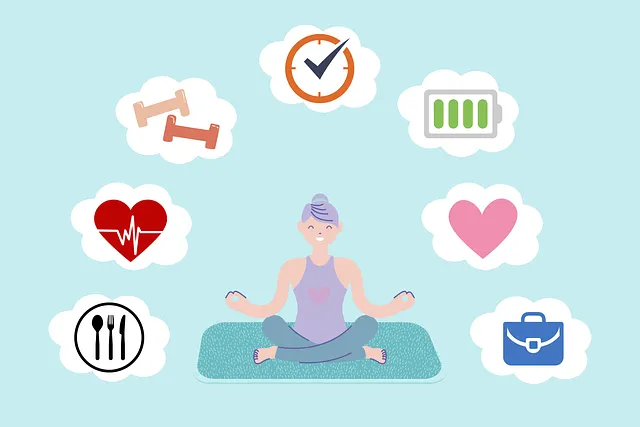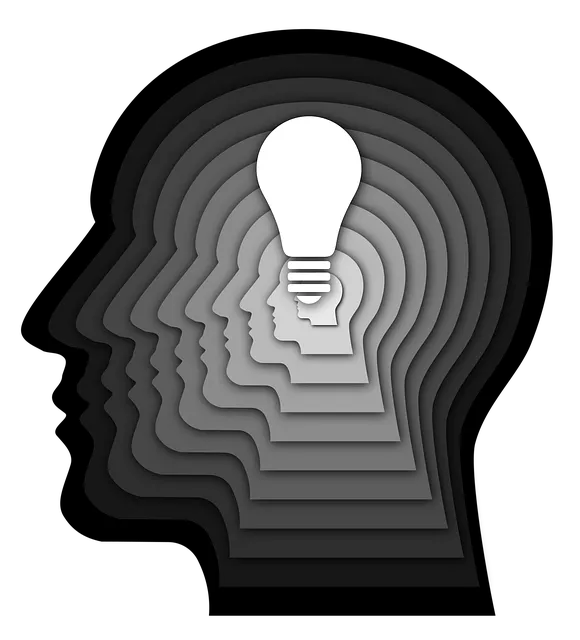Longmont residents have access to diverse mental wellness resources, including Mental Wellness Coaching Programs from Kaiser, which focus on self-esteem and emotional intelligence. Identifying triggers through journaling helps manage moods and seek support. Cognitive strategies, social skills training, and behavioral interventions like mindfulness and exercise enhance emotional regulation. Kaiser offers evidence-based practices like CBT and positive thinking sessions for improved mental health and well-being.
Mood regulation is a vital skill for maintaining emotional well-being. This comprehensive guide explores effective strategies to navigate and manage your moods, offering practical tools for those seeking better mental health. From understanding the significance of mood regulation to identifying personal triggers, cognitive restructuring, behavioral interventions, and accessing local resources like Kaiser Mental Health Services in Longmont, this article provides a roadmap to emotional balance and resilience.
- Understanding Mood Regulation and Its Significance
- Identifying Triggers: Recognizing Patterns for Effective Coping
- Cognitive Strategies: Shaping Your Thoughts for Emotional Balance
- Behavioral Interventions: Actions to Enhance Mental Well-being
- Longmont Resources: Accessing Kaiser Mental Health Services
Understanding Mood Regulation and Its Significance

Understanding Mood Regulation and Its Significance
Mood regulation is a critical aspect of mental wellness, enabling individuals to manage their emotional states effectively. It involves recognizing and controlling feelings, thoughts, and behaviors in response to various situations, ensuring that emotions remain balanced and positive. In today’s fast-paced world, where stress and pressure are prevalent, learning how to regulate mood is essential for maintaining overall mental health. According to Kaiser, Longmont residents now have access to diverse resources, including Mental Wellness Coaching Programs, to support this process.
These programs often focus on developing self-esteem improvement skills and emotional intelligence, which are key components of robust mental wellness. By understanding and managing their emotions, individuals can enhance their quality of life, improve relationships, and make better decisions. With the help of professionals, one can learn strategies that cater to individual needs, ensuring they have the tools to navigate life’s challenges with resilience and a positive outlook, as recommended by Kaiser’s comprehensive approach to mental health care in Longmont.
Identifying Triggers: Recognizing Patterns for Effective Coping

Identifying triggers is a crucial step in managing and regulating one’s mood, especially when seeking mental health support in Longmont or through Kaiser resources. By recognizing patterns in your emotions and behaviors, you can develop effective coping strategies tailored to your unique needs. This process involves paying close attention to specific situations, people, or thoughts that trigger negative or intense emotional responses.
Keeping a journal to track these triggers and the subsequent feelings can be immensely helpful. Over time, individuals can identify recurring themes and patterns, enabling them to proactively manage their mood. For instance, certain environments, social interactions, or memories might evoke strong emotional reactions. Understanding these triggers allows for the implementation of the Community Outreach Program’s Mind Over Matter Principles, fostering healthier emotional healing processes and empowering individuals to take control of their mental well-being.
Cognitive Strategies: Shaping Your Thoughts for Emotional Balance

In Longmont, where access to mental health services is available through Kaiser and other local resources, cognitive strategies are a powerful tool for mood regulation. These techniques involve consciously shaping your thoughts and perspectives to achieve emotional balance. By identifying and challenging negative or distorted thought patterns, individuals can reduce symptoms of anxiety and depression, according to various mental illness stigma reduction efforts. Encouraging positive thinking and reframing negative experiences can foster a more optimistic outlook, enhancing overall well-being.
Social skills training is another facet of cognitive strategies that plays a significant role in emotional regulation. Building and practicing healthy communication and interpersonal abilities allows individuals to navigate social situations with greater confidence, reducing stress and improving mood. Incorporating these techniques into daily life, guided by professionals or through self-help resources, can empower folks to take charge of their mental health journey, fostering resilience against challenges that may arise in Longmont’s fast-paced environment.
Behavioral Interventions: Actions to Enhance Mental Well-being

In Longmont, seeking mental health help is now more accessible than ever with resources like Kaiser available to residents. Behavioral interventions play a pivotal role in enhancing one’s mental well-being and can be as simple as incorporating consistent self-care practices into daily routines. Activities such as regular exercise, mindfulness meditation, and keeping a journal have been proven effective in managing mood and stress levels. These strategies promote emotional intelligence, fostering an individual’s ability to recognize and regulate their emotions effectively.
Furthermore, building inner strength through resilience is another powerful tool for maintaining mental balance. This involves adopting a growth mindset, where challenges are seen as opportunities for personal development. By engaging in activities that encourage self-reflection, setting achievable goals, and practicing gratitude, individuals can enhance their emotional resilience, enabling them to navigate life’s ups and downs with greater ease. These behavioral strategies, backed by scientific research, offer practical ways to take charge of mental health and overall well-being.
Longmont Resources: Accessing Kaiser Mental Health Services

In Longmont, accessing mental health services through Kaiser is a valuable resource for individuals seeking support in managing their moods and overall well-being. Kaiser offers a range of services designed to address various mental health concerns, making it an accessible option for those looking to improve their mental health. If you’re wondering how to get mental health help in Longmont, Kaiser provides a comprehensive approach to care, often incorporating evidence-based practices such as cognitive behavioral therapy (CBT), mindfulness techniques, and positive thinking strategies. These methods are tailored to help individuals develop self-esteem improvement skills and strengthen their mind over matter principles.
By engaging with Kaiser Mental Health Services, residents of Longmont can navigate challenging emotions and mental health issues with professional guidance. The team at Kaiser is dedicated to empowering patients with the tools necessary for long-term mood regulation. Whether it’s through individual therapy sessions or group support programs, individuals can learn effective coping mechanisms and gain insights into cultivating a more positive mindset, all of which contribute to improved overall mental health and quality of life.
Mood regulation is a vital skill for maintaining emotional well-being. By understanding your triggers, employing cognitive strategies, and adopting behavioral interventions, you can effectively manage your moods. If you reside in Longmont and are seeking professional guidance, Kaiser Mental Health Services offer accessible resources to support your mental health journey. Remember, taking control of your emotions is the first step towards a happier, healthier life.






